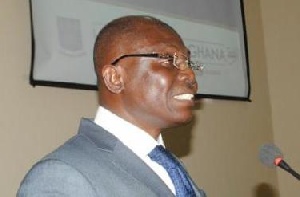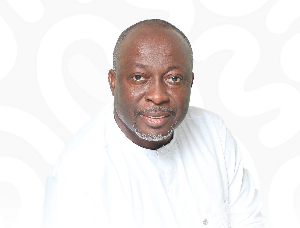The Institute of Scientific Social and Economic Research (ISSER) has described the failure of the Ghanaian economy to sustain its growth momentum as very worrying, saying the negative out-turn in growth in 2014 is the largest since 2008.
Buoyed by oil production, Ghana recorded a high Gross Domestic Product (GDP) of 14.0 percent in 2011 but could not sustain it in subsequent years. “For the first time since at least the half-decade, the country’s growth in 2014 of 4.2 percent fell below the Sub-Saharan African average of 5.0 percent. This was against a target of 7.1 percent”, it added.
In its latest State of the ‘Ghanaian Economy Report, 2014, which was targeted at infrastructural development, the economic think tank said Ghana’s continued falling growth appears to be in contrast with that of the global economy which actually improved slightly from 3.0 percent in 2013 to 3.4 percent in 2014.
The implications are that growth of businesses will be slow while fewer jobs will be created, and livelihood of people will also be affected.
While the EU exhibited a stronger growth of 1.4 percent in 2014 compared with 0.1 percent in 2013, advanced economies such as US and Japan grew from 1.4 percent in 2013 to 1.8 percent in 2014.
Emerging market and developing economies, however, declined from 5.0 percent to 4.6 percent in 2014.
In 2014, industry grew by 0.8 percent while agriculture and services grew by 4.6 and 5.4 percent respectively.
On the fiscal side of the economy, the overall budget deficit for 2014 was 9.3 percent of GDP, lower than the 10.1 percent in 2013.
ISSER said it was unlikely the country’s fiscal situation will improve in 2015 and 2016. It, therefore, called for urgent need for prudent management of government resources.
It stated that while increased efforts to mobilize revenue through an expanded tax base should be pursued instead of overtaxing businesses, the main culprit for the recent huge deficits is the expenditure by government.
The economic think tank said inflation continues to remain high and is at least three times the average rate in sub-Sahara Africa while interest rates remain extremely high, especially amidst very low rates globally.
It added that the key risks to monetary policy include adverse developments in world commodity prices and foreign investments flows which have declined.
“The risks are that these rates may go even higher as the inflation rate has picked up, further raising inflationary expectations. Such a development would likely adversely affect private sector investments.”
It also explained that the Cedi will continue to depreciate, but the rate of depreciation will depend on the government. However, the outlook for 2015 looks bleak and, therefore, the Cocobod Syndication and Eurobond will do little to help the local currency.
With respect to Ghana’s broader development, ISSER noted that the Ghana Shared Growth and Development Agenda II which covers the period 2014-2017 should be targeted at ensuring and sustaining macroeconomic stability, enhancing competitiveness of Ghana’s private sector and oil and gas development.
Others are infrastructure and human settlements development, accelerated agriculture modernization, and sustainable natural resource management as well as transparent, responsive and accountable governance.
On the country’s power, the research outfit based in the University of Ghana said the level of development in the sector has been poor.
According to ISSER, only 0.1 percent of the total target of boosting the national grid has been achieved, adding it is unlikely the nation will achieve even quarter of that target this year.
It expressed concern about distribution losses and depreciation of the Cedi which increases cost of debt payment as some main challenges in the sector.
The year 2014 recorded a lower balance of trade deficit of $1.35 billion (3.5 percent of GDP) as against the huge trade deficit of $4.2 billion (10.4 percent of GDP) in 2013.
The larger current account deficit than the trade deficit ISSER explained suggested a larger servicing deficit and a decreasing trend in net income inflows (remittances relative to income from foreign assets in Ghana). However, the 2014 current account deficit is the smallest in recent years.
It added that the domestic external current account deficit is large, with either roughly three times the sub-Sahara Africa mean. Additionally, government total debt is about twice the sub-Sahara Africa average.
Despite Ghana’s current ranking in the top quintile of sub-Sahara Africa countries on measures of institutional quality (IQ), ISSER said the country’s scores on government effectiveness, an indicator of the quality of public services have fallen below the world average since 2009. It added that this measure of IQ is critical if Ghana is to maintain the level of development governance that is required to sustain the economic growth and development success accruing from the reforms beginning in the 1980s.
Business News of Thursday, 17 September 2015
Source: The Finder
Falling growth rates worrying - ISSER
Entertainment












